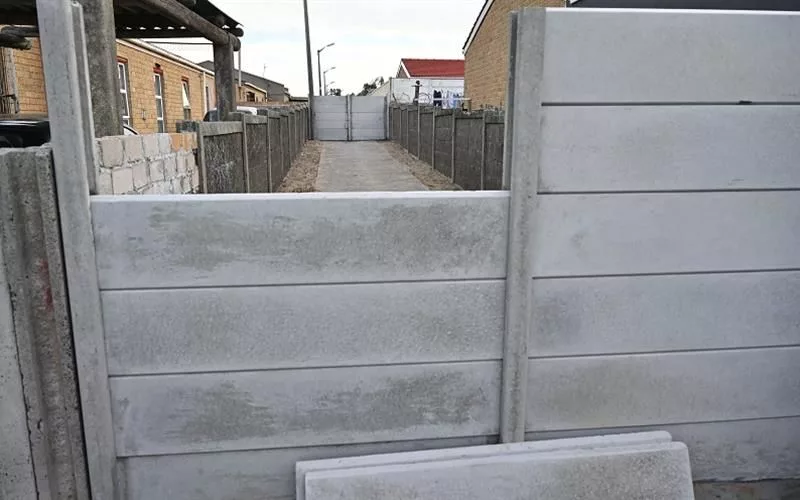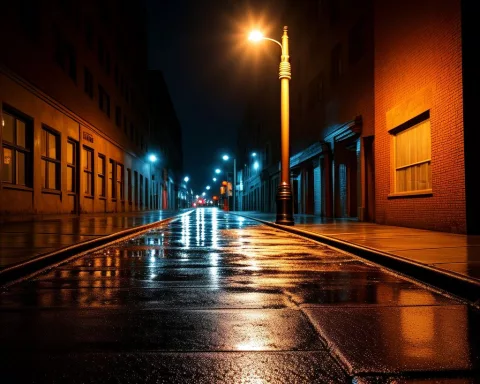Mitchells Plain, a suburb in Cape Town, is closing pedestrian and cycle lanes that have become hotspots for criminal activity in an initiative to combat crime. Since 2013, 57 lanes have been effectively shut down, with an additional 15 in the process of closure. Proposals for lane closures are reviewed by the local Subcouncil, followed by a public participation process, department assessments, and funding allocation. Mayor Geordin Hill-Lewis leads the funding efforts, with R600,000 allocated from July 2024. The initiative demonstrates community-led urban planning to transform public spaces into safer environments.
How is Mitchells Plain transforming pedestrian lanes for safer streets?
Mitchells Plain is closing pedestrian and cycle lanes that have become conduits for criminal activities. Proposals are reviewed by the local Subcouncil, and if approved, a public participation process ensues. Once given the green light, funding is allocated, and the lane closures are implemented. Thus far, 57 lanes have been effectively shut down, and an additional 15 are currently in the process of closure. The funding required for the lane closures is sourced from the Mayoral fund, with Mayor Geordin Hill-Lewis leading the charge.
Mitchells Plain, a sprawling suburb in Cape Town, is taking a bold step towards public safety. The City is meticulously planning the systematic closure of pedestrian and cycle lanes that have become conduits for criminal activities. A resident-driven initiative, this undertaking aims to combat crime by disrupting its very routes.
The journey began back in 2013, under the leadership of Alderman Eddie Andrews. As the City’s Deputy Mayor, Mayoral Committee Member for Spatial Planning and Environment, and Chairperson of Subcouncil 12, he was well-positioned to initiate this crusade. The road since the launch has been fraught with challenges, including the necessity to follow legal processes such as public participation and Council approval.
Thus far, 57 lanes have been effectively and successfully shut down. An additional fifteen are currently in the process of closure, having satisfied all the mandatory legal requirements. “The journey has been extensive, and the community’s patience and support have been invaluable. I am hopeful that these closures will enhance the safety and security of these areas, as criminals and gangsters will no longer be able to exploit these lanes for their unscrupulous deeds,” commented Alderman Andrews.
Funding and Future Steps
The funding required for the lane closures is sourced from the Mayoral fund, with Mayor Geordin Hill-Lewis leading the charge. From 1 July 2024, marking the beginning of the new fiscal year, R600,000 will be allocated for this cause. The Mayor and Alderman Andrews conducted a meeting with the locals at the Lentegeur Community Centre to discuss updates on the 15 approved lane closures.
The lanes in question have a long history, tracing back to the original design of Mitchells Plain. The city planners had envisioned these alleys to enable easy pedestrian movement, but over time, high levels of crime transformed these lanes into public safety hazards. Residents responded by building high walls around their properties, inadvertently making the lanes ideal hideouts and escape routes for criminals due to a lack of visibility and light.
The Lane Closure Process
Following a flood of requests for lane closures from various neighborhoods, Alderman Andrews kickstarted the current initiative in 2013. Proposals for lane closures are reviewed by the local Subcouncil, and if approved, a public participation process ensues. This enables residents to express their views and concerns. The decision-making process also draws from the expertise of various City departments, assessing factors such as the presence of underground services infrastructure, the lane’s relevance for pedestrian movement, and even the availability of access during emergencies.
Once given the green light, funding is allocated, and the lane closures are implemented. The residents, whose properties border the closed lanes, are allowed to lease these spaces from the City for gardening but are prohibited from erecting any structures.
Though the lane closure process can be lengthy, Alderman Andrews remains committed to the cause, stating, “Given the pressing safety concerns, we are working diligently to fast-track the process by dealing with multiple closures simultaneously.” He also pointed out the financial challenges, stressing the importance of local Subcouncils designating funds for this initiative in their financial planning.
The Mitchells Plain initiative is a powerful demonstration of community-led urban planning. It illustrates how city administrations can heed the needs of the community, transforming public spaces into safer environments. Though the process may be slow and laden with financial challenges, the potential benefits – safer neighbourhoods and lower crime rates – make the endeavour worthwhile.
1. What is the Mitchells Plain’s strategy for safer streets?
Mitchells Plain is closing pedestrian and cycle lanes that have become hotspots for criminal activity in an initiative to combat crime. The objective is to transform public spaces into safer environments.
2. How are the proposals for lane closures reviewed in Mitchells Plain?
Proposals for lane closures are reviewed by the local Subcouncil, followed by a public participation process, department assessments, and funding allocation.
3. Who leads the funding efforts for the lane closures in Mitchells Plain?
Mayor Geordin Hill-Lewis leads the funding efforts, with R600,000 allocated from July 2024.
4. How many lanes have been effectively shut down in Mitchells Plain so far?
Thus far, 57 lanes have been effectively shut down, with an additional 15 in the process of closure.
5. What is the history of the lanes in question for closure in Mitchells Plain?
The lanes in question have a long history, tracing back to the original design of Mitchells Plain. The city planners had envisioned these alleys to enable easy pedestrian movement, but over time, high levels of crime transformed these lanes into public safety hazards.
6. What happens to the closed lanes in Mitchells Plain?
Once given the green light, funding is allocated, and the lane closures are implemented. The residents, whose properties border the closed lanes, are allowed to lease these spaces from the City for gardening but are prohibited from erecting any structures.












